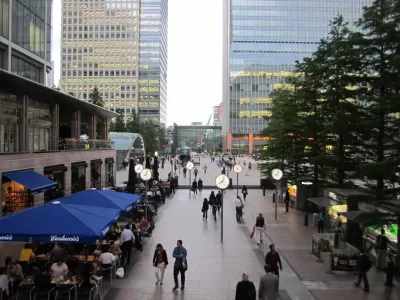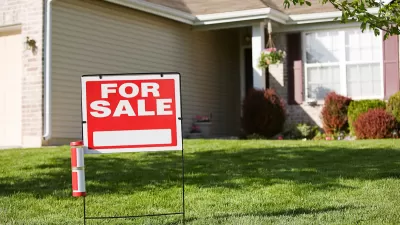It's no secret that urban centers are doing better today than they were 30 years ago. New FHFA data on housing prices confirms the trend and suggests that a changing environment (as opposed to changing preferences) account for it.

Chances are you already know about the "urban renaissance" currently sweeping the United States. "Downtown boosters and academics have argued that we're witnessing an urban revival in the United States. But there remains deep debate over how widespread the pattern really is and whether it points to a fundamental shift in where and how Americans live."
Emily Badger and Darla Cameron cover a new home price index from the Federal Housing Finance Agency, "based on unprecedented mortgage data covering 18,000 zip codes and nearly 100 million transactions between 1975 and 2015" that gauges how homes appreciate and depreciate in value.
The index confirms that central areas have indeed become more desirable and expensive. The researchers also point to patterns suggesting that consumer preferences (such as a supposed millennial proclivity for the city) do not account for the change. "'Data suggests that you don't need changing preferences in order to arrive at the patterns we see,' [senior economist William D. Larson] says."
"The traffic got worse. The crime lessened. The amenities improved. And at least some people have accrued more wealth to spend on high-end restaurants. In many ways, it's the environment that has changed, not us, Larson argues."
The data also shows that alongside an urban price renaissance, suburbs and exurbs are still growing even faster. The demographics, however, are shifting: wealthier and whiter in the cities, more people of color in the suburbs.
FULL STORY: Americans are paying more to live in the very places they once abandoned

Maui's Vacation Rental Debate Turns Ugly
Verbal attacks, misinformation campaigns and fistfights plague a high-stakes debate to convert thousands of vacation rentals into long-term housing.

Planetizen Federal Action Tracker
A weekly monitor of how Trump’s orders and actions are impacting planners and planning in America.

San Francisco Suspends Traffic Calming Amidst Record Deaths
Citing “a challenging fiscal landscape,” the city will cease the program on the heels of 42 traffic deaths, including 24 pedestrians.

Bend, Oregon Zoning Reforms Prioritize Small-Scale Housing
The city altered its zoning code to allow multi-family housing and eliminated parking mandates citywide.

Amtrak Cutting Jobs, Funding to High-Speed Rail
The agency plans to cut 10 percent of its workforce and has confirmed it will not fund new high-speed rail projects.

LA Denies Basic Services to Unhoused Residents
The city has repeatedly failed to respond to requests for trash pickup at encampment sites, and eliminated a program that provided mobile showers and toilets.
Urban Design for Planners 1: Software Tools
This six-course series explores essential urban design concepts using open source software and equips planners with the tools they need to participate fully in the urban design process.
Planning for Universal Design
Learn the tools for implementing Universal Design in planning regulations.
planning NEXT
Appalachian Highlands Housing Partners
Mpact (founded as Rail~Volution)
City of Camden Redevelopment Agency
City of Astoria
City of Portland
City of Laramie





























